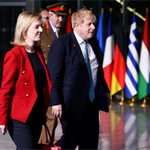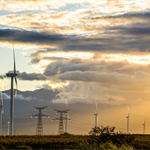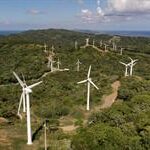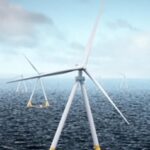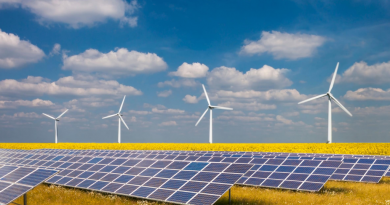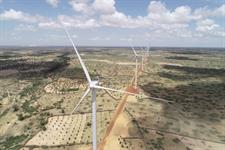Where the US’s ‘build back better’ bill delivers for wind – and where it doesn’t
Energy Disrupter

The $1.7 trillion “build back better” (BBB) bill, currently being assessed by the Senate, is the largest US effort yet to tackle the climate crisis, but is weakened by the absence of carbon pricing, according to speakers at the American Clean Power Association’s Cleanpower 2021 conference in Salt Lake City.
However, it does go some way to appeasing calls for local content requirements as the country’s energy transition accelerates, according to industry experts.
In a video address on the final day (8 December) of the conference, vice president Kamala Harris told delegates that she and President Joe Biden expected the bill to be approved by the Senate, just as it was by the lower chamber of Congress, the House of Representatives, in late November.
The bill contains generous tax credits that benefit wind, as well as solar. They are expected to survive debate and make it into a final bill, according to experts.
“It will help your businesses build and produce clean energy and lower costs for families that are making the shift to clean energy,” Harris said.
Local content
The bill also offers a 10% bonus for the wind manufacturing credit if enough of the content is domestic.
In a separate video interview with ACP chief executive Heather Zichal, energy expert and IHS Markit vice chairman Daniel Yergin said there will likely be “flare-ups” over the national origin of wind and other renewable-energy components as the sector increases in scale.
Biden is seeking to tie growth in US renewable energy to domestic jobs and manufacturing – a process that Yergin called “re-shoring”, as opposed to offshoring.
This approach is markedly different from that of his predecessor. When former president Donald Trump slammed wind power in his infamous “I never understood wind” speech in
Florida two years ago, he criticised wind turbines for being non-American, claiming “they’re made in China and Germany, mostly”.
Carbon pricing
Notable by its absence from the BBB bill was a carbon tax – a controversial, politically unacceptable proposal in much of the US.
There were rumours that a carbon tax might appear in the bill, but such a levy was ultimately left out – so unpopular is the prospect.
However, in a further video address to the conference, Larry Summers, treasury secretary during Bill Clinton’s presidency, ex-director of the National Economic Council and former chief economist at the World Bank, backed carbon pricing.
“Carbon pricing would be a very positive thing,” he said. “It won’t happen any time soon, [but] it would be a good thing for the economy.”
There should be a level playing field for energy technologies, with externalities accounted for, Summers said. Economic externalities in the electricity sector might be CO2 emissions from production and use of fossil fuels, he added.



